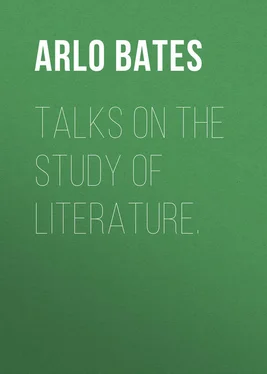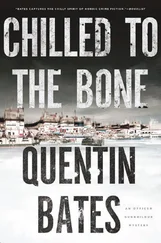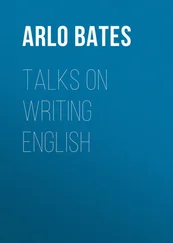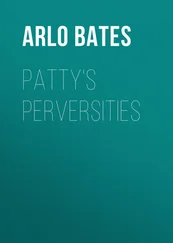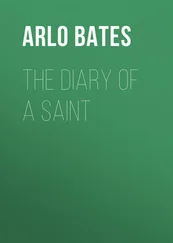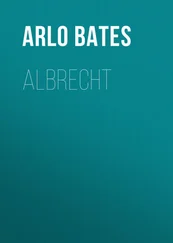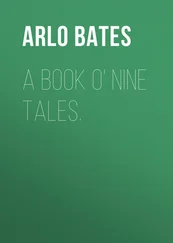Arlo Bates - Talks on the study of literature.
Здесь есть возможность читать онлайн «Arlo Bates - Talks on the study of literature.» — ознакомительный отрывок электронной книги совершенно бесплатно, а после прочтения отрывка купить полную версию. В некоторых случаях можно слушать аудио, скачать через торрент в формате fb2 и присутствует краткое содержание. Жанр: foreign_antique, foreign_prose, на английском языке. Описание произведения, (предисловие) а так же отзывы посетителей доступны на портале библиотеки ЛибКат.
- Название:Talks on the study of literature.
- Автор:
- Жанр:
- Год:неизвестен
- ISBN:нет данных
- Рейтинг книги:5 / 5. Голосов: 1
-
Избранное:Добавить в избранное
- Отзывы:
-
Ваша оценка:
- 100
- 1
- 2
- 3
- 4
- 5
Talks on the study of literature.: краткое содержание, описание и аннотация
Предлагаем к чтению аннотацию, описание, краткое содержание или предисловие (зависит от того, что написал сам автор книги «Talks on the study of literature.»). Если вы не нашли необходимую информацию о книге — напишите в комментариях, мы постараемся отыскать её.
Talks on the study of literature. — читать онлайн ознакомительный отрывок
Ниже представлен текст книги, разбитый по страницам. Система сохранения места последней прочитанной страницы, позволяет с удобством читать онлайн бесплатно книгу «Talks on the study of literature.», без необходимости каждый раз заново искать на чём Вы остановились. Поставьте закладку, и сможете в любой момент перейти на страницу, на которой закончили чтение.
Интервал:
Закладка:
Books explain us to ourselves. They reveal to us capabilities in our nature before unsuspected. They make intelligible the meaning and significance of mental experiences. There are books the constant rereading of which presents itself to an imaginative man as a sort of moral duty, so great is the illumination which they throw upon the inner being. I could name works which I personally cannot leave long neglected without a feeling of conscious guilt. It is of books of this nature that Emerson says that they
Take rank in our life with parents and lovers and passionate experiences, so medicinal, so stringent, so revolutionary, so authoritative, – books which are the work and the proof of faculties so comprehensive, so nearly equal to the world which they paint, that though one shuts them with meaner ones, he feels the exclusion from them to accuse his way of living. — Books.
There are probably none of us who have lived in vital relations to literature who cannot remember some book which has been an epoch in our lives. The times and the places when and where we read them stand out in memory as those of great mental crises. We recall the unforgettable night in which we sat until the cold gray dawn looked in at the window reading Lessing's "Nathan the Wise," the sunny slope where we experienced Madame de Gasparin's "Near and Heavenly Horizons," the winter twilight in the library when that most strenuous trumpet blast of all modern ethical poetry, "Childe Roland to the Dark Tower Came," first rang in the ears of the inner self. We all have these memories. There are books which must to us always be alive. They have spoken to us; we have heard their very voices; we know them in our heart of hearts.
That desire for sympathy which is universal is another strong incentive to acquaintance with literature. The savage who is less miserable in fear or in suffering if he find a fellow whose living presence saves him from the awful sense of being alone is unconsciously moved by this desire. The more fully the race is developed the more is this craving for human companionship and human appreciation conscious. We know how impossible it is ever completely to blend our consciousness for the smallest instant with that of any other human being. The nearest approach to this is the sharing with another some common feeling. There are blissful moments when some other is absorbed in the same emotion as that which we feel; when we seem to be one with the heart and the mind of another creature because the same strong passion sways us both. These are the mountain-tops of existence. These are the times which stand out in our remembrance as those in which life has touched in seeming the divine impossible.
It is of the greatest rarity, however, that we find, even in our closest friends, that comprehension and delicate sympathy for which we long. Indeed, such is human egotism that it is all but impossible for any one so far to abandon his own personality as to enter fully into the more delicate and intangible feelings of his fellow. A friend is another self, according to the proverb, but it is apt to be himself and not yourself. To find sympathy which comes from a knowledge that our inmost emotions are shared we turn to books. Especially is this true in bereavement and in sorrow. The touch of a human hand, the wistful look in the eye of the friend who longs to help, or the mere presence of some beautiful and responsive spirit, is the best solace where comfort is impossible; but even the tenderest human presence may jar, while in books there is a consolation and a tenderness unhampered by the baffling sense of a consciousness still outside of our own no matter how strenuously it longs to be in perfect unity. I knew once a mother who had lost her only child, and who used to sit for hours pressing to her heart Plutarch's divinely tender letter to his wife on the death of his own little one. It was almost as if she felt her baby again in her arms, and the leather covers of the book were stained with tears consecrated and saving. Who could count the number to whom "In Memoriam" has carried comfort when living friends had no message? The critical defects of that poem are not far to seek; but it would ill become us to forget how many grief-laden hearts it has reached and touched. The book which lessens the pain of humanity is in so far higher than criticism.
Josiah Quincy used in his old age to relate how his mother, left a young widow by the death of her husband within sight of the shores of America when on his return from a mission to England, found comfort in the soothing ministration of books: —
She cultivated the memory of my father, even in my earliest childhood, by reading me passages from the poets, and obliging me to learn by heart and repeat such as were best adapted to her own circumstances and feelings. Among others the whole leave-taking of Hector and Andromache, in the sixth book of Pope's Homer, was one of her favorite lessons… Her imagination, probably, found consolation in the repetition of lines which brought to mind and seemed to typify her own great bereavement.
And think'st thou not how wretched we shall be, —
A widow I, a helpless orphan he?
These lines, and the whole tenor of Andromache's address and circumstances, she identified with her own sufferings, which seemed relieved by the tears my repetition of them drew from her.
This comforting power of literature is one which need not perhaps have been enlarged upon so fully, but it is one which has to do with the most intimate and poignant relations of life.
It is largely in virtue of the sympathy which it is possible to feel for books that from them we not only receive a knowledge of the capacities of human emotion, but we are given actual emotional experience as well. For literature has a twofold office. It not only shows the possibilities of life, but it may make these possibilities realities. If art simply showed us what might be without aiding us further, it would be but a banquet of Tantalus. We must have the substance as well as the shadow. We are born not only with a craving to know what emotions are the birthright of man, but with an instinctive desire to enter into that inheritance. We wish to be all that it is possible for men to be. The small boy who burns to be a pirate or a policeman when he grows up, is moved by the idea that to men of these somewhat analogous callings come a richness of adventure and a fullness of sensation which are not to be found in ordinary lives. The lad does not reason this out, of course; but the instinctive desire for emotion speaks in him. We are born with the craving to know to the full the emotions of the race. It is to few of us in modern civilized life that circumstances permit a widely extended experience in actual mental sensations. The commonplace actualities of every-day life show plain and dull beside the almost infinite possibilities of existence. The realization of the contrast makes not a few mortals unhappy and dissatisfied; but those who are wiser accept life as it is, and turn to art for the gratification of the instinctive craving which is unsatisfied by outward reality.
It may be that fate has condemned us to the most humdrum of existences. We trade or we teach or are lawyers or housekeepers, doctors or nurses, or the curse of the gods has fallen upon us and we are condemned to the dreariness of a life of pleasure-seeking. We cannot of ourselves know the delights of the free outlaw's life under "the greene shaw," – the chase of the deer, the twang of the bowstring, the song of the minstrel, the relish of venison pasty and humming nut-brown ale, are not for us in the flesh. If we go into the library, however, take down that volume with the cover of worn brown leather, and give up the imagination to the guidance of the author, all these things become possible to the inner sense. We become aware of the reek of the woodland fire, the smell of the venison roasting on spits of ash-wood, the chatter of deep manly voices, the cheery sound of the bugle-horn afar, the misty green light of the forest, the soft sinking feel of the moss upon which in imagination we have flung ourselves down, while Will Scarlet teases Friar Tuck yonder, and Allan-a-Dale touches light wandering chords on his harp. – Ah, where are the four walls of the library, where is the dull round of cares and trifles which involve us day by day? We are in merry Sherwood with bold Robin Hood, and we know what there was felt and lived.
Читать дальшеИнтервал:
Закладка:
Похожие книги на «Talks on the study of literature.»
Представляем Вашему вниманию похожие книги на «Talks on the study of literature.» списком для выбора. Мы отобрали схожую по названию и смыслу литературу в надежде предоставить читателям больше вариантов отыскать новые, интересные, ещё непрочитанные произведения.
Обсуждение, отзывы о книге «Talks on the study of literature.» и просто собственные мнения читателей. Оставьте ваши комментарии, напишите, что Вы думаете о произведении, его смысле или главных героях. Укажите что конкретно понравилось, а что нет, и почему Вы так считаете.
